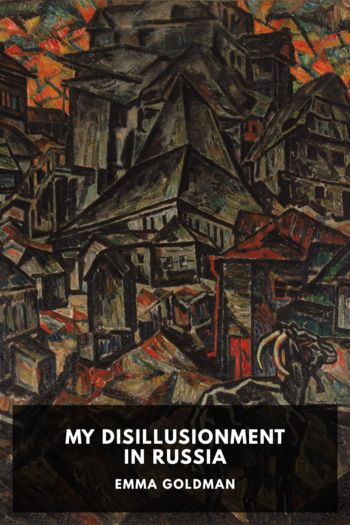Monkey Boy Francisco Goldman (best ereader for students .txt) 📖

- Author: Francisco Goldman
Book online «Monkey Boy Francisco Goldman (best ereader for students .txt) 📖». Author Francisco Goldman
We’d finished the beers. Marianne sat up cross-legged to smoke a cigarette, dropping the ashes into an empty beer can beside her. I could hear the ashes pattering down inside the can. She lay on her side with her back to me, knees drawn up in a way that pulled up her sweater, exposing a slim excerpt of waist, the curve of hip muscles down into her jeans.
But poor Prince Andrei, he was never going to get the chance because …
I could hear her soft, inside-a-seashell snore. I’d never felt so intimate with beauty, yet so far away. I’d do anything, risk anything for her, this is what love is, I told myself.
I take a drink of the wine Marianne ordered, an Oregon pinot noir. Her phone pings. My daughter, she says with a tight smile and excuses herself to type a response. I glance down at my phone: nope, no message from Lulú. The waiter arrives with our plates. Salt-crusted cod for her. Fried Ipswich clams for me, my favorite. Small talk about fried clams. She lives out there on the North Shore, yes, many hours invested in family clamming outings in the Essex marshlands. No, it’s not that she’s bored of them, it’s just that one fried clam alone probably surpasses her allowed daily fat intake. Come on, just have one, I coax. Oh my God, that’s so good, she moans. I’d almost forgotten. And I’ve never tasted coleslaw like this, so crunchy and fresh, and what are these flavors it has, fine New England dining indeed.
Marianne begins to tell me about her law practice. Right out of law school at BC, she went to work for a small prestigious Beacon Hill family firm. When, at twenty-eight, she decided to open her own practice, her former employers and associates couldn’t have been more supportive. I was just so fortunate, Frank, right from the start. She had a little office near Government Center, and she and her husband, Derek, bought a townhouse right here in the South End before the neighborhood gentrified. When her son, Connor, was born, she brought him to work with her every day and into courthouses, breast-feeding him in judges’ chambers conferences. When we had Maddy, says Marianne, we could afford a full-time nanny. We bought the house in Topsfield. It was a long commute, but it’s a dream house with a pasture and woods near the river. The kids and I kept the house after the divorce.
The nanny? She seems surprised I’m curious about the nanny. The first one, Leena, was from Ireland. Later came Bonnie from Jamaica. Derek used to book rock shows here in Boston, she answers when I ask what he does for a living. When I met him in college, she says, he was a roadie for J. Geils. She makes a winsomely rueful expression. Then he became a booking agent for some of the Boston punk and new wave bands coming out of the Rat and other clubs. He did well for a while. I lived some of that life, Frank. Now Derek’s trying to get back into it. When Maddy heard on NPR about Pluto being downgraded to a dwarf planet, she said, Just like poor Daddy, downgraded to a dwarf planet, too, and launching a comeback in his little punk rock rocket ship.
Ouch, I say. But she has a wit, doesn’t she.
She sure does, says Marianne. Maddy is in her freshman year at Brown. Connor’s a junior at Carleton.
Isn’t there an Audubon sanctuary in Topsfield? I ask. My father used to take me bird-watching there. I rarely remember that when I was a little boy, Bert was at times a pretty devoted dad. Those better memories get buried by what came after.
It’s called the Ipswich River Wildlife Sanctuary, says Marianne. Even though it’s in Topsfield. If snowy white owls were called that because they deliver cocaine, then Derek would have taken our kids bird-watching too.
That comment hangs there in the air a moment. So many of the people I know in New York and Mexico City, I say, had pretty major coke habits. Some still do.
Something in her gaze looks ripped open. It closes. You’re telling me, she says. That’s not the only way Derek fucked up his life, but it’s a long story.
We’re forty-nine, I say. Life is a long story, don’t you think.
Marianne recovers her smile with the aplomb of someone picking a hat off the floor and putting it back on without missing a beat, and says, Oh, you’re telling me. Speaking of which, seems like you really get around, don’t you. New York, Mexico, Cuba. The last time she heard me on the radio, she says, I was talking about that Cuban revolutionary poet who lived in New York City. José Martí, right? His name’s everywhere in Miami, she says. But I never really knew anything about him. Something you said really struck me. A man should never do in the dark what he wouldn’t do by daylight, you said Martí said. Right there I started making a list in my head of all the things I’ve done by day that I should only have done in the dark.
We laugh, and I say, That’s in his diaries somewhere. Because of the mores of the time and his own sensitive position as the political and moral leader of the Cubans in exile, Martí had to keep so much of his life secret, and that hurt and humiliated him. I fill Marianne in a little bit, about the daughter, María, whom he’d had with his landlady, and whom he adored, and the situation in the boardinghouse and my book.
What’s the title? she asks.
The House





Comments (0)